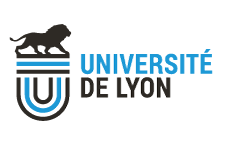Boutique des Sciences > Projects > 2013-2014
Information provided by health system users and its influence on the pertinence of treatment routes
The Collectif Interassociatif pour la Santé en Rhône-Alpes (“Union of Associations for Health in the Rhône-Alpes”) requested that we carry out an exploratory study focusing on health. This research would explore the question of the “access to and sharing of information or knowledge” within the context of “at-home hospitalization”, based upon testimonies provided by patients, their loved ones and the healthcare professionals serving them, via open-ended interviews, followed by their qualitative analysis. This study shows that the “patient/loved one” community jointly constructs knowledge comprising information made available within the healthcare service by the “healthcare community” (nurses, nursing auxiliaries, doctors, etc.) and the “homecare community” (home healthcare providers), and based on the empirical experiences particular to each patient and loved one confronted by hospitalization.

The patient and his/her loved one are considered by the medical community as being experts of the patient’s illness. The results also demonstrate that there exists a need for knowledge among persons suffering from a pathology, and the family caregivers also consider it their duty to remain informed, to learn about new scientific knowledge concerning their loved one’s affliction, and even to learn the medical actions carried out by nurses. Furthermore, information, transparency and security are all important issues within this context, given the segmenting of the available information and the lack of face-to-face meetings. Dialogue is essential for the effective flow and exchange of information, and is in great demand by both patients and their loved ones. For medical professionals, the information acquired out-in-the-field and associated with the patients’ experiences gives meaning and consistency to the medical knowledge produced by nurses, exams, blood tests, etc. This information transmitted by patients and their loved ones is subjective in nature, but nevertheless sought by healthcare professionals (medical and psychological caregivers, nurses, etc.). The two main obstacles to effective healthcare are a lack of time and a lack of dialogue, according to the patients and caregivers interviewed. The expressed recommendations focus on the accompaniment and training of family caregivers. We therefore suggest setting up discussion groups proposed by user associations as a means of psychological support, thereby meeting the need of family caregivers and patients for dialogue, as well as setting up a directory of the medical and social-services staff by the "at-home hospitalization" institution, to be provided to the patient upon his/her return home and updated regularly. Finally, we propose the creation of a training module presenting the accompaniment service to the patients and their caregivers; in addition to explaining the procedures and measures related to the patient’s return home, this module could also present the various professionals liable to participate in the patient’s at-home care.
CSO
Collectif Inter associatif Sur la Santé Rhône-Alpes (CISS RA)
Représentant : M. Julian MARTINEZ, coordinateur
student
Mme Sarah BELLEMARE FAYARD, étudiante en Master 2 Recherche Représentations Transmissions Sociales à l’Institut de Psychologie (Lyon 2)
researcher
Academic tutor :
M. Bruno CUVILLIER, groupe de recherche en psychologie sociale (GRePS - Lyon 2)
Scientific supervisor :
Mme Christine DURIF- BRUCKERT




 WebAdmin
WebAdmin